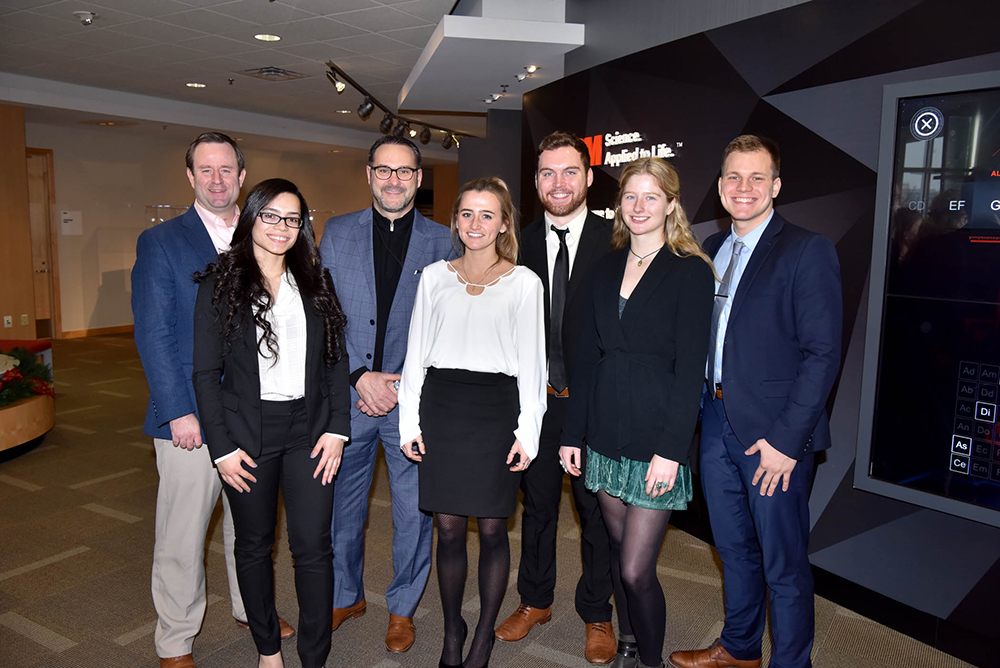Handling the Customer Employee Relationship, According to Northwestern – Chicago News

Let’s explore some of the most interesting stories that have emerged from Chicago business schools this week.
Customers Can Be Jerks. Here’s Why Some Employees Retaliate – Kellogg Insight
Northwestern University Kellogg School of Management Clinical Professor of Management and Organizations Cynthia Wang co-authored new research that seeks to understand the broader implications of employee reactions to unpleasant customers. Do they respond in turn with hostility and try to sabotage the customer or do they turn the other cheek?
Among the extensive psychological research in this area, Wang and her co-authors were drawn to a model known as the social intuitionist model, which argues that moral-decision making is the result of snap judgement and heightened emotion.
“In that heightened emotional state,” Wang explains, “we begin to view problem customers as not worthy of fair treatment—a phenomenon psychologists call ‘devaluation of targets’—which leads employees to see those customers as subhuman.” The reverse, where customers also treat employees poorly, also rang true.
Wang adds:
“These decisions are very quick and implicit. We don’t necessarily notice them going on.”
You can read more about the research here.
Brexit Clouded by Uncertainty, Says Gies Professor – Gies School of Business News
United Kingdom Prime Minister Theresa May canceled the House of Commons Brexit vote that was scheduled for December 11, putting a Brexit solution on hold for now, leaving the future of UK’s relationship with the European Union up in the air.
The UK is still scheduled to leave the EU on March 29, 2019 and parliament needs to strike a deal to make the departure as smooth as possible. Major challenges include finding a solution for the border between Northern Ireland and the Republic of Ireland, along with dealing with the consequences of leaving the European Union for businesses and jobs in both the United States and the UK.
Candace Martinez, University of Illinois Gies College of Business Clinical Assistant Professor of Business Administration, remarks, “If the UK cannot arrive at a solution to the Irish border quandary, a ‘backstop’ approach is a last resort,” noting that Northern Ireland voted to remain in the EU on the June 2016 referendum.
Martinez adds, “Uncertainties are everywhere. This is uncharted waters, to be sure.”
You can read more from the interview with Martinez here.
Sales Class Challenges Students to Provide Creative Solutions for Nonprofits – DePaul Business News & Events
As part of the Marketing 386: Social Impact Sales course at the DePaul University Driehaus College of Business Center for Sales Leadership, students are partnered with a local nonprofit, providing marketing and sales advice. “After working in teams, students present their business plans to the nonprofit toward the end of the quarter. A winning team is then selected by Drehmer and the non-profit to present their creative solutions in front of executives at 3M in St. Paul, Minn.,” according to DePaul University’s Jaclyn Lansbery.

(Left to right) Center for Sales Leadership Executive-in-Residence Charlie Drehmer; Isaly Varela; Mark McLellan, national channel operations manager at 3M; Dominique DiVito; Gavin Hultgren; Ava Kilborn and Mike Nowak / Photo via business.depaul.edu
Charles Drehmer (BS `03, MBA `04, MA `16, Ph.D. `17), who teaches the course, says: “The Social Impact Sales class is extremely rewarding for both me and the students in that we truly make difference in people’s lives. The class is as real as it gets, where students meet with the client to discover their needs and wants, design and execute a market research study and then present their recommendations to the client. Not only does the project provide students a hands-on real-world experience, they also get to make a positive impact on underserved communities.”
Last fall, students worked with Chicago Community ToolBank, providing a marketing and sales strategy. “The project focused on a new program, Corporate Days of Service, which offers private companies a unique team-bonding experience where they use the ToolBank’s tools and facilities to build furniture that is donated to a nonprofit organization of their choice. Students also worked together to build bookshelves that were donated so they better understood what new service would entail,” Lansbery writes.
Isaly Varela, an undergraduate business student in the program, adds, “The class has given us the skills to think critically about marketing and sales along with being comfortable with ourselves.
To read more about the program, head on over to the official DePaul Univesity website.
Curbing the Conspiracy Mindset at Northwestern, and More – Chicago News

Let’s explore some of the most interesting stories that have emerged from Chicago business schools this week.
Conspiracy Theories Abound. Here’s How to Curb Their Allure – Kellogg Insight
Northwestern Kellogg Clinical Professor of Management and Organizations Cynthia Wang took a social psychological approach to understand what drives conspiratorial perceptions like Pizzagate, and “what are things that can be done by organizations that can prevent this mindset,” highlighted in a recent release from Kellogg Insight.
Wang co-authored a new paper with UCLA’s Jennifer Whitson, Penn State-Erie’s Joongseo Kim, Ohio State’s Tanya Menon, and Ball State’s Brian Webster, which finds that “individuals who exhibit a desire to take action in pursuit of their goals are less prone to conspiratorial thinking.”
The group began to focus on “regulatory focus theory (RFT), which looks at how people go about achieving their goals.” Kellogg Insight explains:
“RFT proposes two main strategies. People with a “promotion-focused” orientation aim to do everything in their power to achieve their hopes and dreams. In this mindset, individuals believe they can shape their future, suggesting that they feel a high degree of control over their environment. Those with a “prevention-focused” orientation, on the other hand, act diligently to protect the security they already have.
The researchers hypothesized that prevention-focused people might be more prone to believe conspiracy theories because conspiracies can feel like a threat to their security. The team suspected that people with a promotion focus, however, would be more skeptical.“
The team surveyed three groups of people, including military personnel and college students. Consistently, they found that people who were more “promotion” focused thought they had more agency in what happens to them, and therefore more control. In this frame of mind, those that felt they had more control were less susceptible to believe conspiracy theories.
You can read more about the group’s research here.
Yuxuan Tang is Ready for His 48 Hours of Fame – Gies School of Business Blog
Gies College of Business senior Yuxuan Tang was one of four University of Illinois students drawn from the Illinois MakerLab and selected to compete in Season 3 of the PBS show Make 48, a “televised national invention competition that gives teams 48 hours to come up with an idea, create a prototype, and present their idea to a panel of judges.”
Tang writes, “It’s an honor. The competition is like a sped-up creation process. Being able to make the model is important, but the rest of the team should diversify. You need some people to see ‘How’s the market? What do customers think of this service?’ That’s what business people do.”
You can read more about Tang’s work here.
Graduate Students Tackle Issue of Clean Water in Haiti – Quinlan School of Business Blog
Loyola’s Masters of Social Justice student Josh Goralski spoke with the Quinlan School of Business Blog about his social enterprise, which “focuses on building water filtration businesses [in Haiti] funded through micro-financing.”
This idea is an extension of a business idea he and his undergraduate classmates at Rockhurst University developed to address the 5,700 Haitians water-related diseases claim each year. According to the article, “52.4 percent of Haiti’s rural population does not have access to clean water.”

Loyola student Josh Goralski, pictured in Haiti / Photo via luc.edu
“Water filters would be sold by local community members. The sellers would be trained and certified to micro-finance the filters affordably for their community members.” According to the article, the ceramic water filter that the Haitian water enterprises sell can “provide clean water for a family of five for up to 10 years with little maintenance, and save families $400+ USD over 10 years.”
Goralski writes that his goal is to “empower communities. We wondered, how do we work with a local community partner, provide access to business education training, and empower these communities?”
You can can read more about Goralski’s work here.
